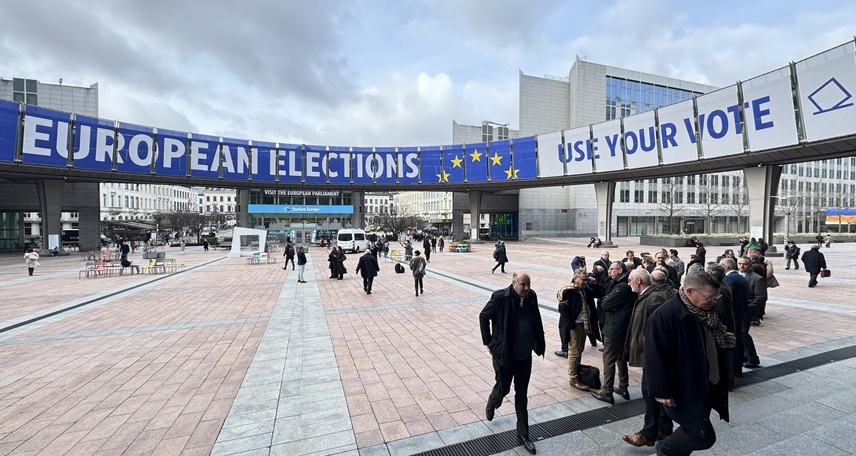In the context of the upcoming European elections, taking place from June 6th to 9th of this year, the European Association for Electromobility (AVERE) has released a Manifesto including ten provisions that should be carried out to accelerate the adoption of electric vehicles (EVs).

“As the European Union (EU) elections approach, we find ourselves at a critical crossroads, where the decisions we make today will impact Europe’s industrial leadership in zero-emission technologies for future road transport”, states Maciej Mazur, President of AVERE.
The organization argues that to maintain its global competitiveness, the EU needs to implement short- and medium-term financial strategies that support battery materials, as well as zero-emission technologies and industries, mirroring efforts seen in other parts of the world.
This would ensure sustainability, competitiveness, and job creation in the region.
“The future of electric mobility depends on the next European Commission enforcing established trajectories and creating an enabling framework,” Mazur states.
“Now is the time to implement far-reaching electrification plans and remove barriers to the deployment of eMobility,” he adds.
What does AVERE propose to the European Commission to boost electric mobility?
Firstly, the association proposes the establishment of a new Executive Vice-President of the Commission for Open Strategic Autonomy to continue the work done on the Green Deal and at the same time foster EU competitiveness on the global stage.
Consequently, an ambitious trade policy should be included to ensure access to raw materials, environmental and industrial policies to ensure the development of an industrial base with high standards, an energy policy to access competitive green electricity, and R&D focused on developing new low-carbon solutions.
Moreover, it is crucial to recognize the counterproductiveness of protectionist measures such as tariffs on electric vehicle imports from outside the union.
Secondly, AVERE emphasizes the need to consolidate and implement legislation to ensure the predictability of investments while achieving carbon-neutral road transport by 2050.
This should include streamlining and reducing duplication of requirements in different legislations to have a harmonized approach throughout the EU to measure the environmental performance of vehicles.
Additionally, they advocate for reforming state aid to be dependent on results and performance.
Furthermore, the institution asserts that it is essential to ensure more efficient grids by introducing flexible tariffs and connection agreements.
This factor goes hand in hand with the need for the next Commission authorities to promote access and affordability of electromobility for all.
The group suggests achieving this result by promoting zero-emission shared mobility and public transport through infrastructure and fiscal measures, as well as corporate fleet legislation.
Defining European guidelines for charging infrastructure accessibility, communication protocols, and roaming to ensure that electric mobility is user-friendly, even for people with disabilities, is also listed among AVERE’s requirements.
Within the same line, the entity proposes in the short term to establish a Battery Materials Bank, followed by the creation of a new European Critical Raw Materials Fund in the medium term.
This way, they propose to create a dynamic value chain supplying the carbon-neutral components needed for sustainable mobility.
In the regulatory sphere, they aim to develop European regulatory frameworks for type approval and public road testing of driver assistance and automated systems.
Finally, as a last point, to promote road safety in the era of automation, they propose the establishment of a European Road Safety Agency.
This agency would lead the safe deployment of automated systems through a unified regulatory framework.
“Previous investments have not only supported electromobility but also catalyzed job opportunities, underscoring the positive socio-economic impact of the transition,” concludes Mazur.
Read more: T&E calls on the newly elected Commission to approve a regulation on zero-emission fleets








